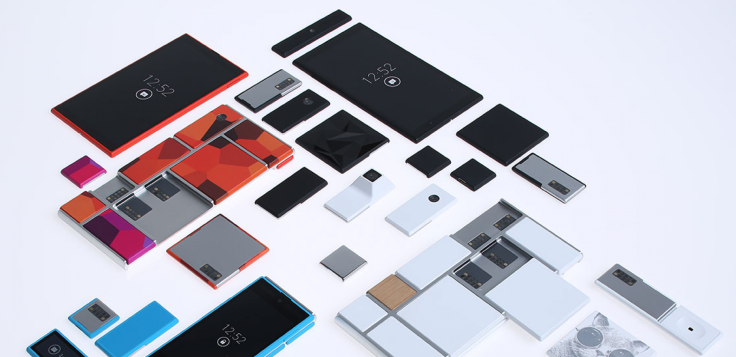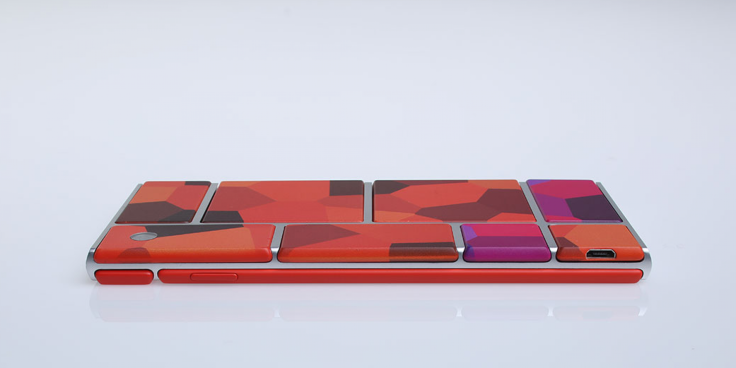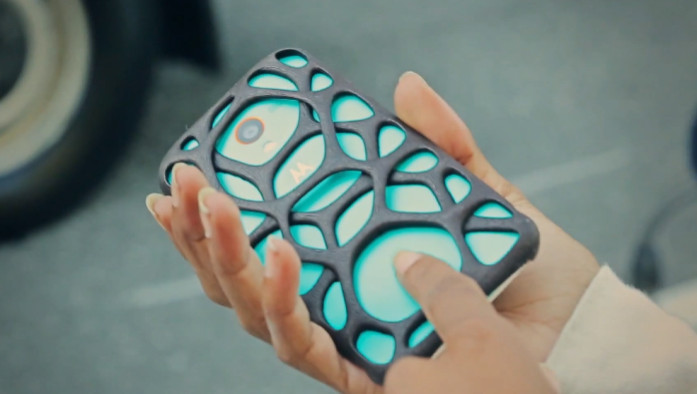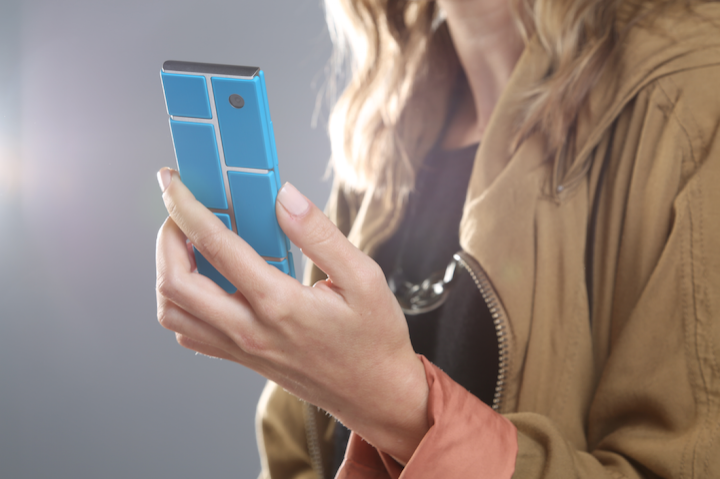Phonebloks: Motorola Partners With 3D Systems For Modular Smartphone Future In 'Project Ara’

Motorola will partner with 3D Systems (NYSE:DDD) to develop Project Ara, a line of modular smartphones that it says will be easily upgraded by consumers. Rather than throwing out a smartphone when a must-have feature comes out on a new model, such as an upgraded camera, Project Ara promises to let smartphone users purchase Phonebloks and swap out components like Lego bricks.
3D Systems, specialists in the printing process also known as additive manufacturing, will work with Motorola on the 3D printing production of the Phonebloks. 3D Systems sells the Cube line of consumer 3D printers, and also works with manufacturers in aerospace and other industries.

“With Project Ara, we asked the question, ‘How do we bring the benefits of customization and an open hardware ecosystem to 6 billion people?’ That is our driving application. It requires technical advances in areas such as material strength and printing with conductive inks for antennas,” Regina Dugan, head of Motorola’s Advanced Technology & Projects group said in a release. “And those advances must support production-level speeds and volumes, which is a natural partnership with 3D Systems.”
3D Systems says it will expand its program for printing multiple materials, focusing on creating components that conduct electricity. The two companies previously partnered for MakeWithX, a cross-country promotional tour where users were able to design and create cases for the Moto X smartphone using Cube 3D printers.

Phonebloks was an idea developed by design student Dave Hakkens, who made a YouTube video featuring the “open-source hardware” that went viral in September. Hakkens said at the time that Phonebloks would consist of a “made-to-last” base, with easily replaceable parts, or "bloks," that connect to a main board (and transfer data and electicity) via a pin system.
The original Phonebloks video has more than 18 million views as of this writing. When the video made it big, Motorola announced Project Ara, claiming that it had been under development for more than a year.
What Hakkins called the main board, Motorola had been developing as an endoskeleton it called an endo. Project Ara featured a similar design to Phonebloks, but appears to lose the pin system of connecting to the main board in favor of sliding metal contacts.
Motorola invited Hakkens to work alongside Project Ara on a social community to support the project. Hakkens agreed and is seeking donations to keep the Phonebloks community independently funded and distinct from Google and Motorola’s Project Ara.
Hakkens said in a video follow-up that he and Motorola agreed that phones developed by Project Ara would be “modular, open-source, designed to last and made for the entire world. Motorola “is committed to developing their modular hone in the open,” Hakkens said, and will be “listening to the Phonebloks community” to find out “our suggestions, ideas and what we want from a new kind of phone.”

Motorola announced that it would attempt to release a modular developer’s kit this winter, to allow smartphone developers to begin tinkering with the “hackable” hardware.
“We want to do for hardware what the Android platform has done for software,” Paul Eremenko, Motorola VP of advanced technology, said when Project Ara was announced. “Create a vibrant third-party developer ecosystem, lower the barriers to entry, increase the pace of innovation, and substantially compress development timelines."
Motorola promises that Project Ara will be “built on an open platform,” but has toned down the original video’s other lofty goal – that Phonebloks will reduce the waste that accompanies electronic devices in an upgrade-obsessed, throwaway culture; including a more consumer-friendly second-hand market for phone parts.
© Copyright IBTimes 2025. All rights reserved.



















